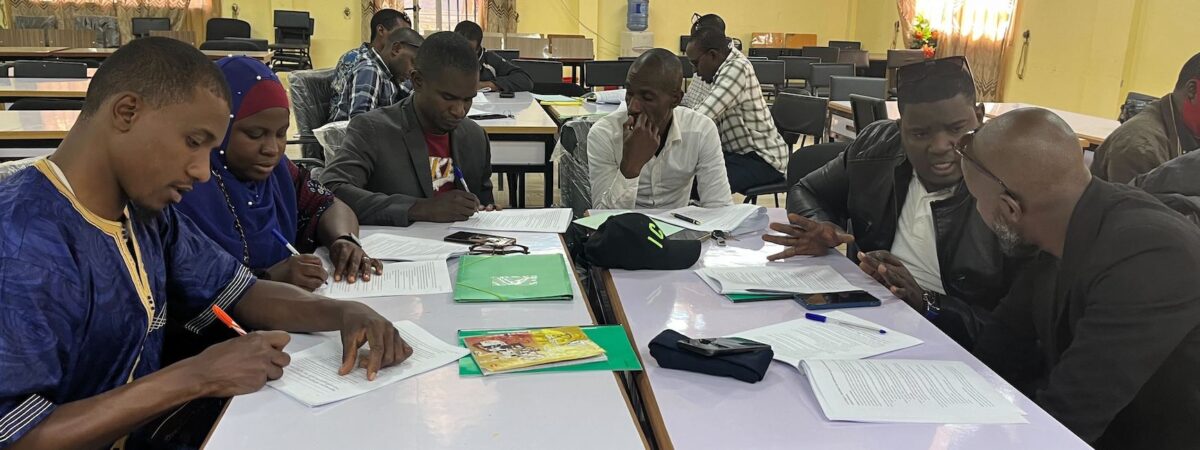How can digital tools be leveraged in low-tech settings to deliver powerful learning? April Williamson, project director for global programs at Digital Promise, recently traveled to Guinea to train local educators to do just that, alongside Community Engagement Exchange (CEE) fellow Aissata Bah.
Aissata is a Guinean young professional and educational leader who completed her three-month CEE fellowship practicum with Digital Promise in Washington, D.C., during the summer of 2023. During her practicum, Aissata worked with April to develop training materials for educators around the world who want to start using technology to create powerful learning experiences. Since returning to her hometown of Dalaba, Guinea, Aissata has been working with the educational NGO that she co-founded, Jeune Espoir, on a project to train Guinean educators around powerful blended learning techniques. April received a Community Engagement Project Exchange Program grant to travel to Guinea to support Aissata and the Jeune Espoir staff with this work. Below, Aissata and April share some highlights and key takeaways from April’s visit.
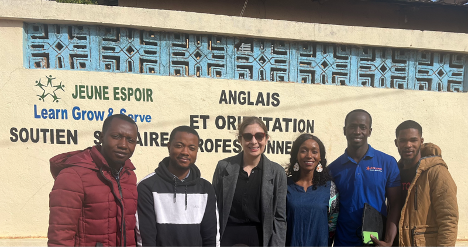
April, Aissata, and other Jeune Espoir staff members gather in Dalaba, Guinea to collaborate on the development and delivery of professional development activities for local educators.
- Government engagement. The team started the week by visiting the Directeur Préfectoral de l’Education (DPE)—the government’s education director in Dalaba—to reinforce the close collaboration with the government that is essential to improving the education system in Guinea. He emphasized the value of technology as a tool to enhance educators’ pedagogy and provide opportunities for deeper, more active learning. While technology is not yet prevalent in classrooms in Dalaba, children are already using technologies like smartphones outside of school, and local government leaders want to ensure that educators are ready for the inevitable proliferation of technology in Guinean schools.
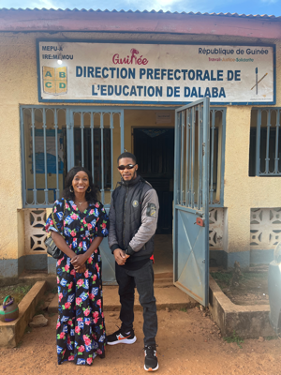
Aissata and a colleague at Jeune Espoir visit the local education director in Dalaba to ensure the project’s alignment with national education priorities.
- Leadership development. Community-based organizations like Jeune Espoir play a critical role in enacting change locally, because staff members have a deep knowledge of the context, constraints, and opportunities in Guinea. Part of April’s visit centered on building the capacity of the Jeune Espoir staff to lead high-quality professional development sessions for adult educators. April shared a number of active learning strategies for adults. There was an engaging discussion of how to positively and constructively frame feedback to teachers—especially more experienced teachers—in a culture that places high value on respect for elders. Jeune Espoir staff member Boubacar Barry reflected, “The point that struck me the most was the positive framing that is needed to switch to more engaging and motivating instructional methods. I’ve also learned that trainers need to know how important the training is for them, how the training could change their way of doing things, and what the impact would be for their learners. This is a source of motivation for them.” He plans to use the strategies discussed during his next training sessions with educators.
- Educator engagement. April, Aissata, and the Jeune Espoir staff also collaborated to lead a multi-day training workshop for local middle school and high school teachers focused on powerful blended learning implementation strategies. The participating educators have expressed a lot of enthusiasm for bringing blended learning into their classrooms and have already started sharing updates and questions via a WhatsApp community as they start to build out their blended classes.Teachers who participated in the training noted that they are also excited to expand the use of blended learning throughout Dalaba: “We want to share the experience of this training so it can benefit everyone in the community.” Jeune Espoir staff member Ce Minga Maomy expanded on this vision: “We hope that we can apply this training throughout the country and that Digital Promise, in collaboration with Jeune Espoir, will be able to strengthen the capacity of educators and change the education system in Guinea.”
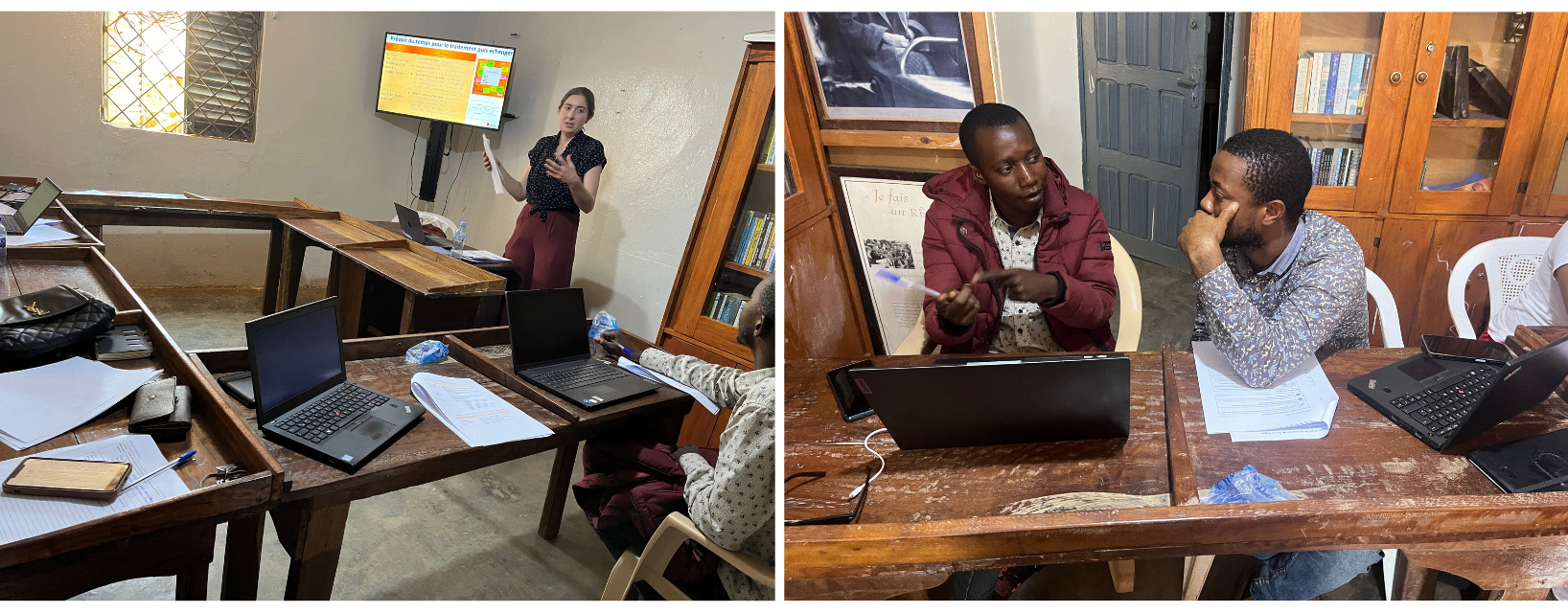
April leads a “training-of-trainers” for Jeune Espoir staff members focused on active learning strategies to promote adult educators’ professional development.
- Content needs. As a next step, the Jeune Espoir team sees a big need for creating a curated repository for teachers of various digital content options that are aligned to the Guinean curricular standards. Educators who are excited to start implementing blended learning want to know what specific tools are available. Jeune Espoir has created interactive digital versions of the Guinean high school math and science courses—content that can be used either online and offline and accessed either at home or at school—but they also want to ensure that educators have easy access to a broader bank of digital tools and content options that can be used across all subjects and all levels of the education system.
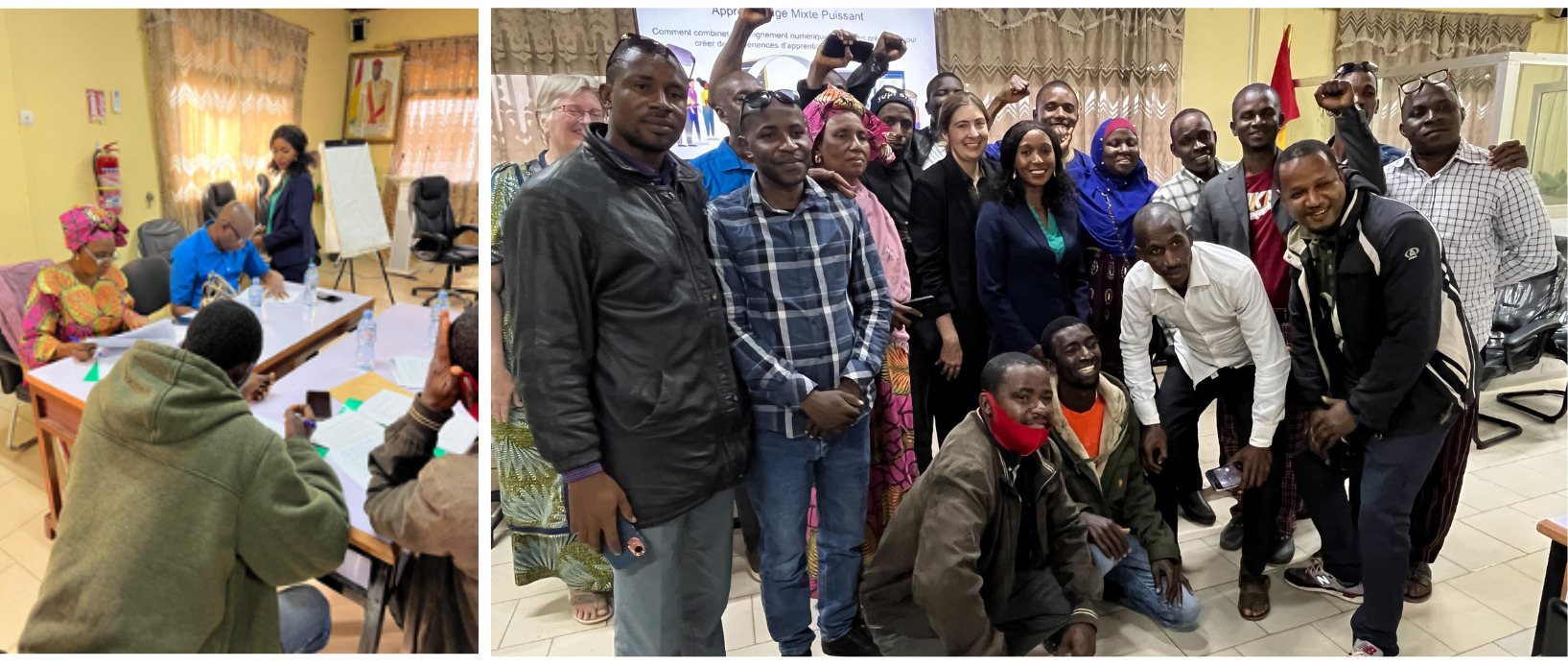
April, Aissata, and the Jeune Espoir staff lead a training workshop for local educators focused on powerful blended learning techniques.
- Cultural exchange. One of the key priorities of the Community Engagement Project Exchange Program is for participants to share their knowledge and culture in order to strengthen communities across both the CEE fellow’s home country and the United States. To deepen April’s cultural understanding, Aissata and a local guide led April on a tour of Dalaba and its surroundings. Dalaba is known for its beautiful mountains, lush vegetation, and cool climate. Because of this inviting environment, the famous South African singer and activist Mariam Makeba lived in Dalaba for a period of time in the late 20th century.
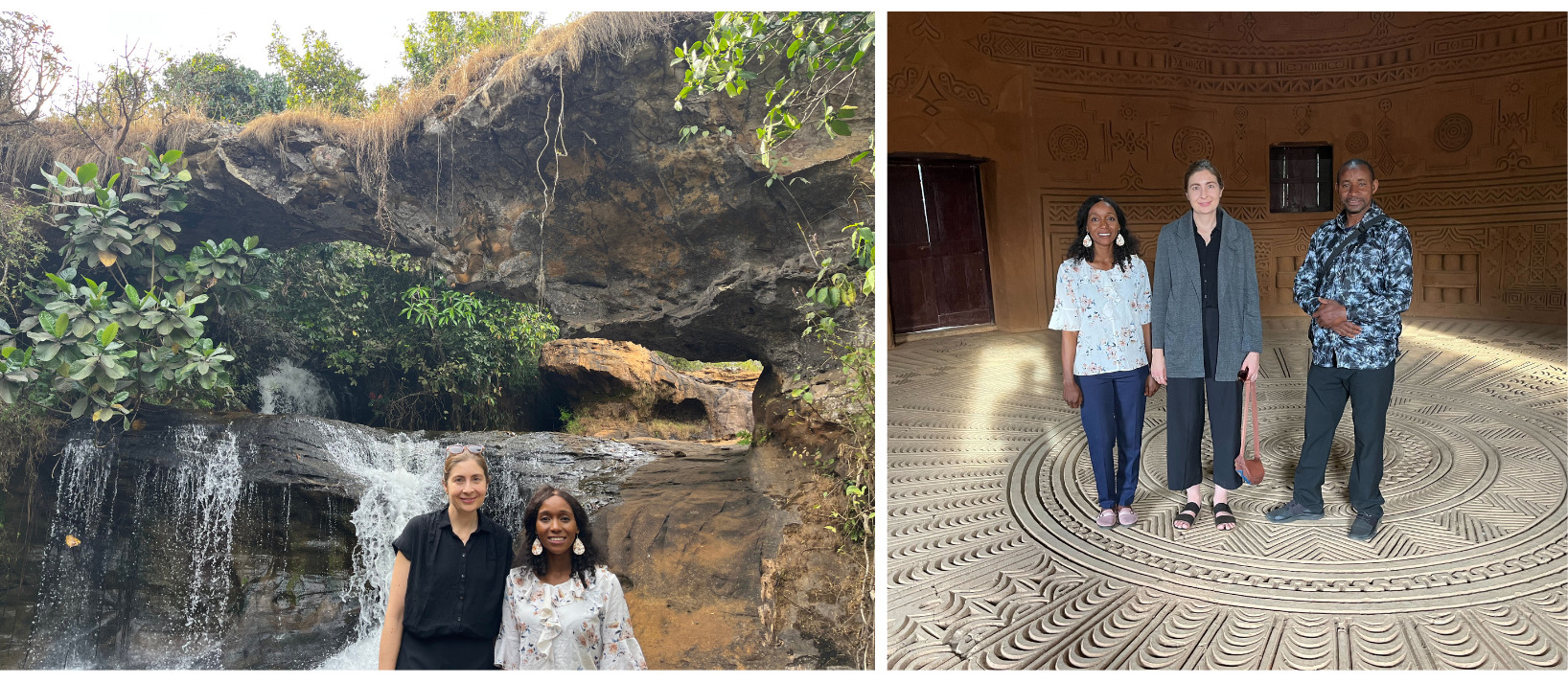
April and Aissata visit Dalaba, Guinea, and its beautiful surroundings.
Summing up the rich and rewarding week of collaboration, Jeune Espoir staff member Sekou Mansare said: “What we have done is to open teachers’ minds to the realities of the 21st century. Many of them were really struck by how much blended instruction can fundamentally change their teaching. It will help them have a greater impact with less time and will enable their students to reach their fullest possible potential by moving from just knowing and understanding to the highest levels of application. The teachers are committed, through the help of Jeune Espoir, to shift from traditional teaching to blended learning.“
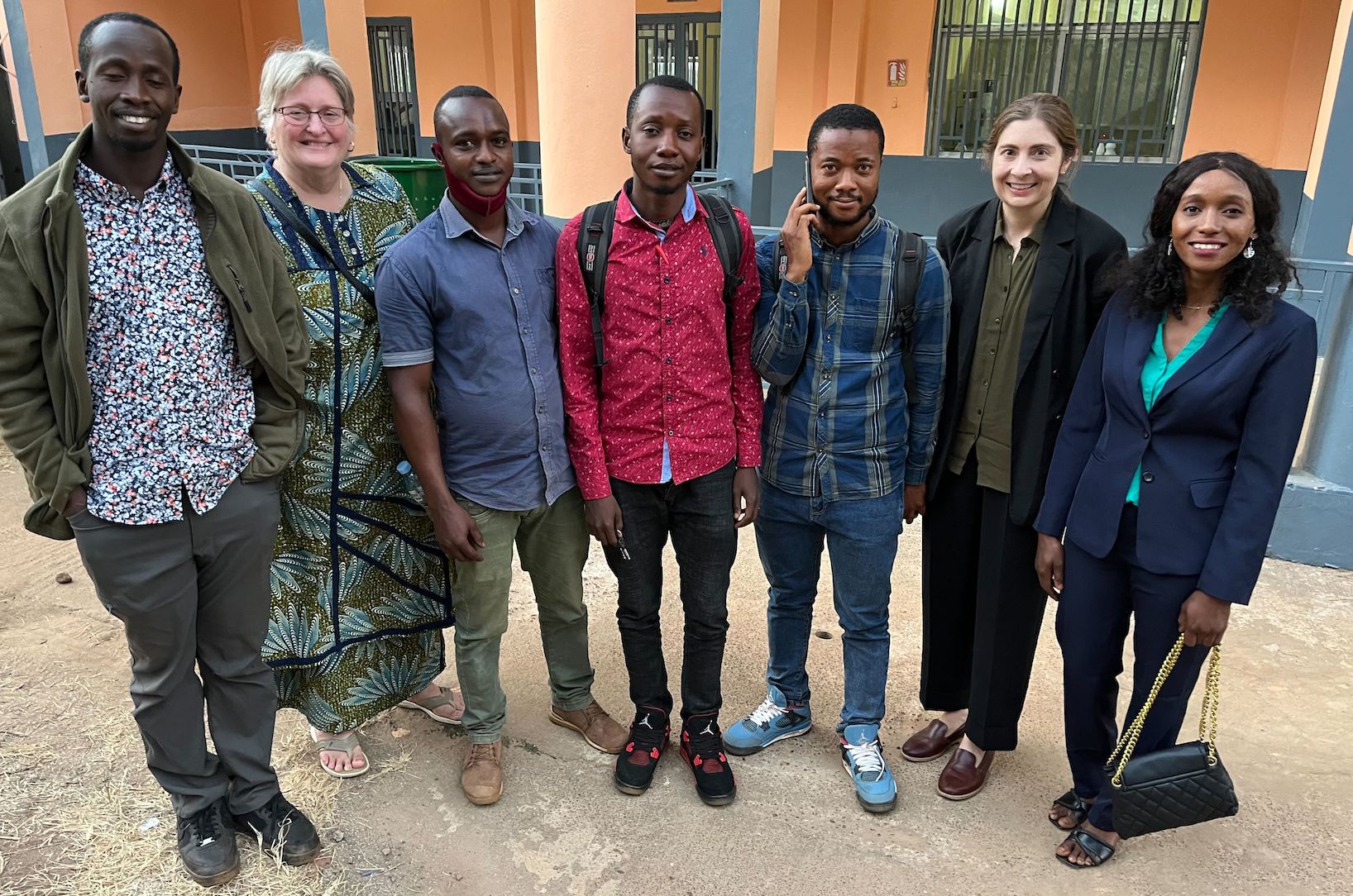
April, Aissata, and the Jeune Espoir staff celebrate the end to a successful week of collaboration.
Interested in learning more? Check out Jeune Espoir’s work in Guinea and Digital Promise’s efforts to bring powerful learning to communities around the world.
Research for this article was supported in part by the Community Engagement Exchange Program, a program of the Bureau of Educational and Cultural Affairs (ECA) of the United States Department of State, implemented by IREX. The views expressed are the author’s own and do not represent the Community Engagement Exchange Program, the U.S. Department of State, or IREX.
